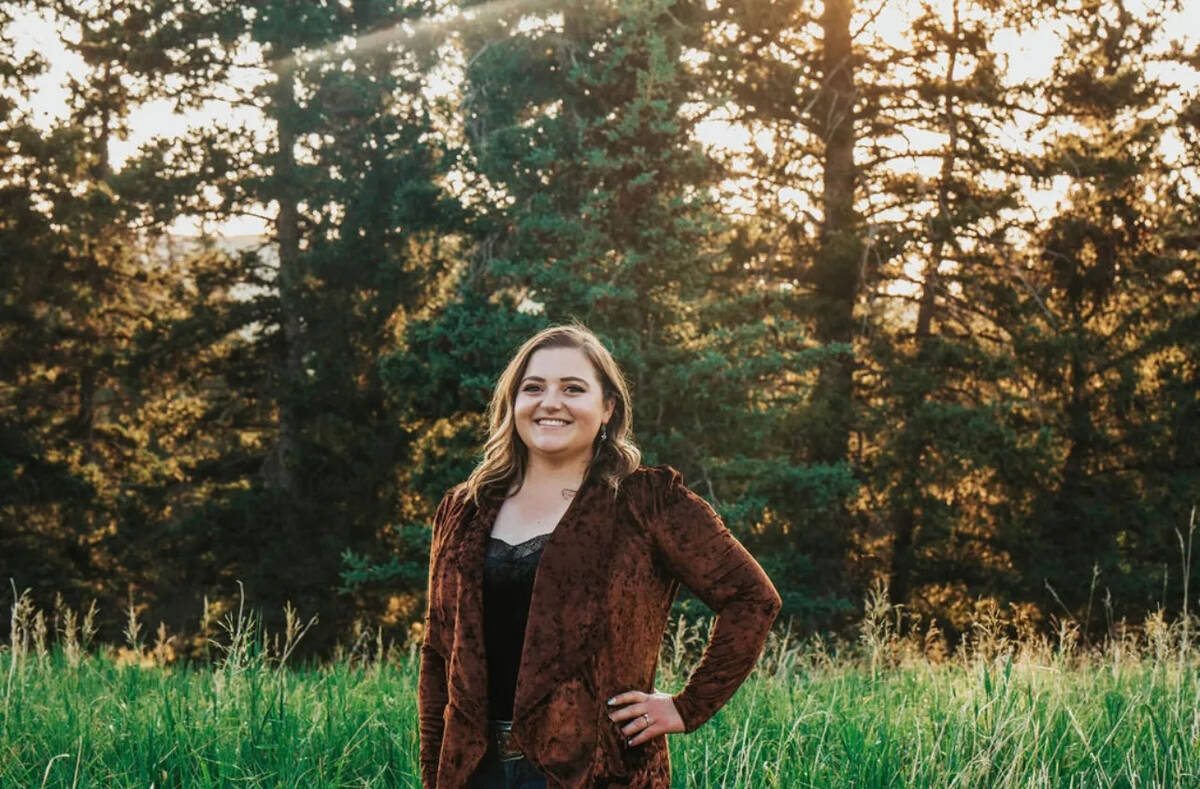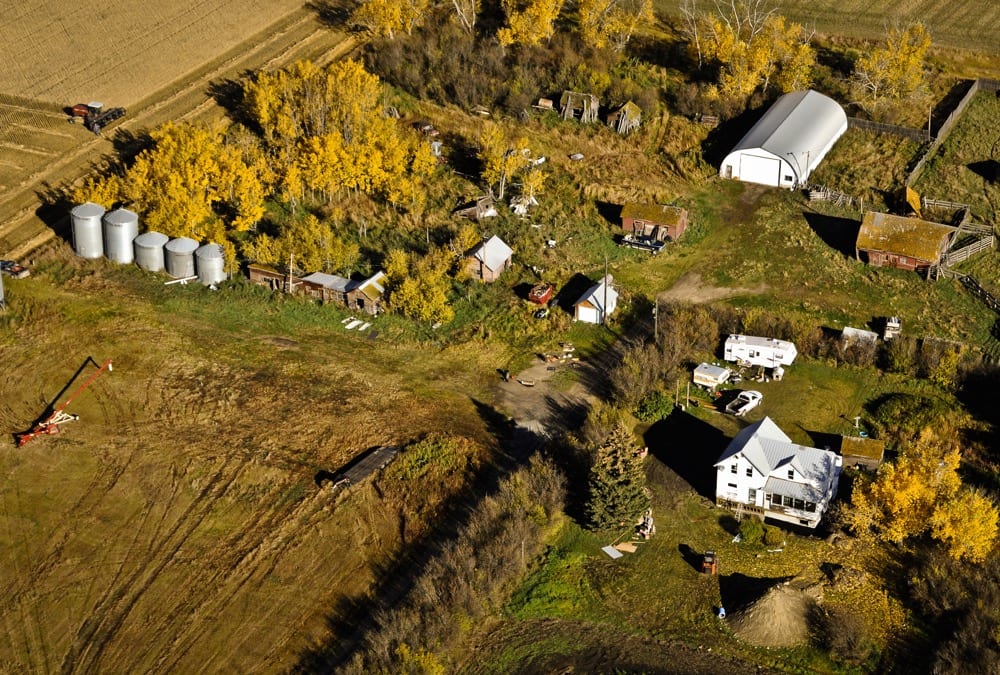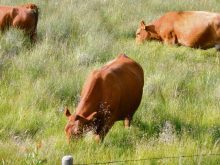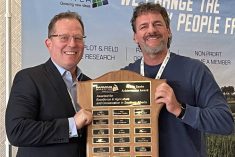Annessa Good-Hassard knows first-hand what many farm families are going through when it comes to transition.
Besides being a consultant and speaker on the topic, she and her husband are taking over her family’s Alberta farm.
“I’m on the roller coaster ride of succession planning with all of you,” she told the Farm Credit Canada young farmer summit.
Read Also
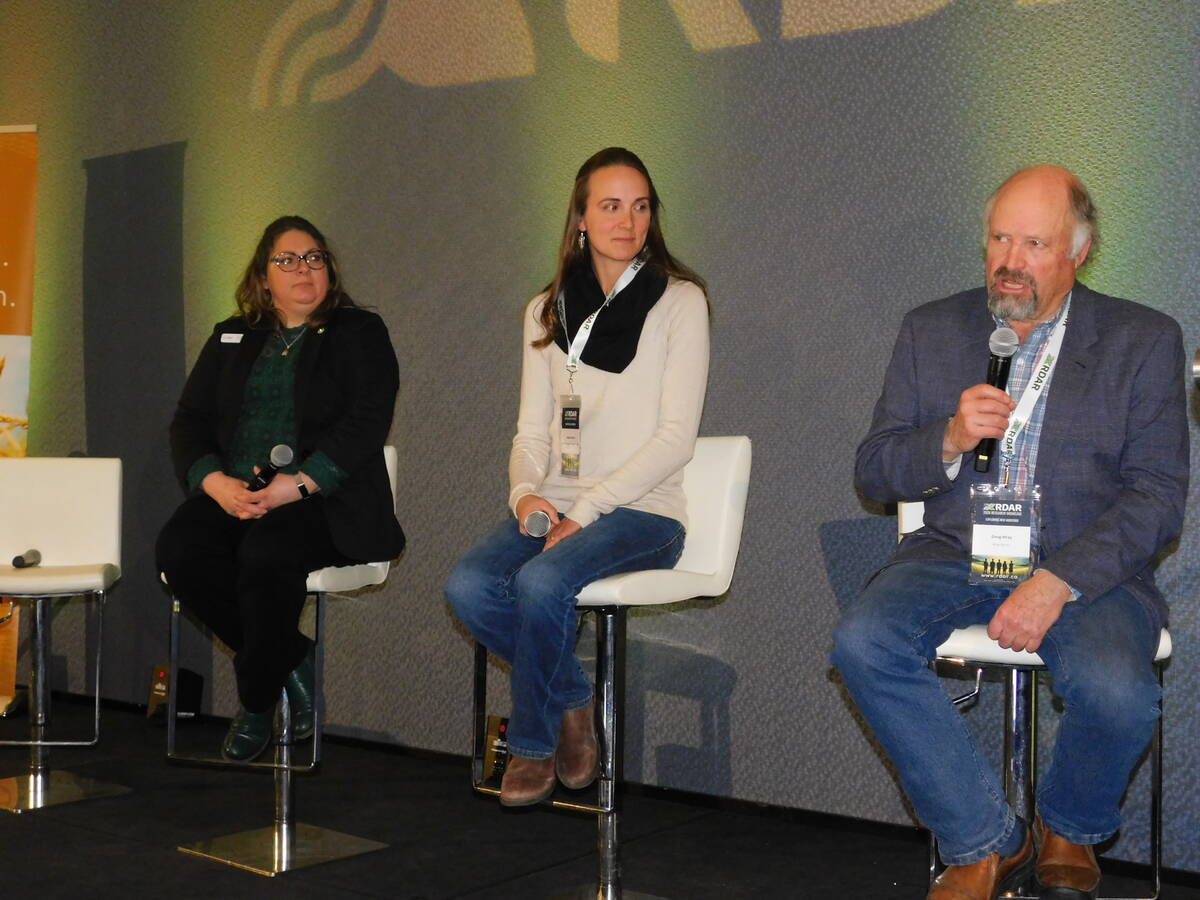
Alberta producers share why on-farm research drives success at RDAR showcase
Farmers explain how producer-led trials and strategic data collection are bridging the gap between the lab and the field in their operations.
Her definition of succession planning is the transfer of the business. It considers who is choosing to take over the farm and if that person is being set up for success.
“My definition of estate planning is transfer of assets before and after death,” she said.
“Historically, succession or transition planning has focused on the transfer of the assets, but now because of the size, scale and complexity of operations, it needs to be a marriage where we’re also focusing on bringing that skill set up to par.”
Decisions made on the business side will affect the estate plan, and she said families should always look at the same idea through two different lenses.
Lens one is a long-term process, or a progression, where they consider transition over time. The second lens is whether the business is viable and sustainable if someone dies.
“If any key member on your farm was struck by lightning tomorrow, is the will financially feasible,” Good-Hassard said. “I’ve had the honour to sit with over 500 families in Canada. This is the number one gap. When we open the will and read the implications for the fair-versus-equal discussion, it’s not feasible for the business to maintain the size that it is to date.”
She said this is why working together with an accountant and lawyer on the estate plan is critical. Often the senior generation on a farm says they don’t know how to write the will because so much will change over time, but writing a will for decades into the future is not necessarily the way to do it.
Writing a will for the next three years, which she calls an emergency will, might be better. It will match the business plan and the estate plan and take into account scenario planning, such as losing rented acres, she said.
At the meeting, participants said through an electronic participation platform that 70 per cent of them didn’t have a will. However, the majority also reported they had been home on the farm for 10 years or more.
Good-Hassard said that scared her from a farm asset protection standpoint.
Often the junior generation points fingers at the older generation for not providing clarity on their intentions for the farm, but she said junior generation members who don’t have a will are indicating they aren’t serious or prepared to take on more responsibility.
“If you don’t own significant assets yet, that’s OK,” she said.
“The first time I wrote my will I owned my dog, my truck, my trailer and my horse. It doesn’t have to be that complex.”
A number of people in the room had small children, and Good-Hassard said it is also critical that a will be in place so they are taken care of legally if something happens.
Every family farm faces common issues of communication, fair versus equal, power struggles and conflict.
Good-Hassard said trust is a key part of the transition planning process, as is using the right professional advisers.
Sometimes junior generations are impatient because the senior generation won’t say what they intend to do, but Val Panko, an FCC business adviser, said the reverse could be true.
“Sometimes the senior partners are … waiting for you to come through the door and make a proposal,” Panko said.
One of the meeting participants asked how to navigate through the fair-vs-equal debate regarding non-farming children.
“There’s no silver bullet,” Panko said.
There can be perceptions that the farming sibling has been handed everything. She said if that sibling can demonstrate, perhaps by purchasing land from the parents, that they are contributing to the farm, that sends a signal.
Good-Hassard said one of the first questions she asks is whether $1 worth of land is equal to $1 of cash. The second is how many generations they are planning for because often the senior partners talk about grandchildren who aren’t even born yet.
One family she worked with had a fair-vs-equal challenge from an off-farm child. Basic math found that it took $67 of capital for the parents to earn $1 of grocery money on this farm, but what the child saw in the yard was the $1 million combine. Those types of conversations need to be had so that everyone understands the situation and transition can proceed more smoothly, she said.

